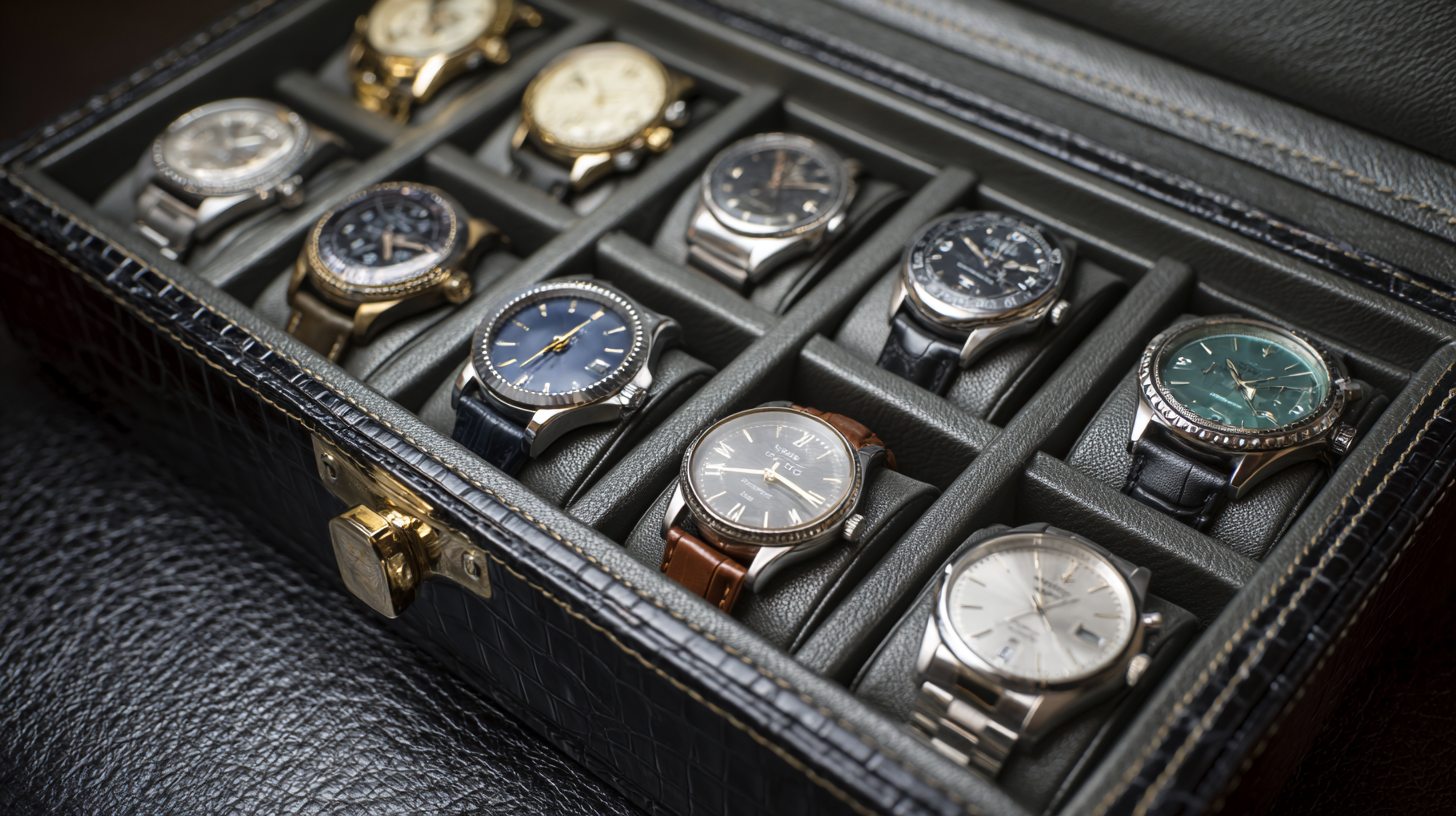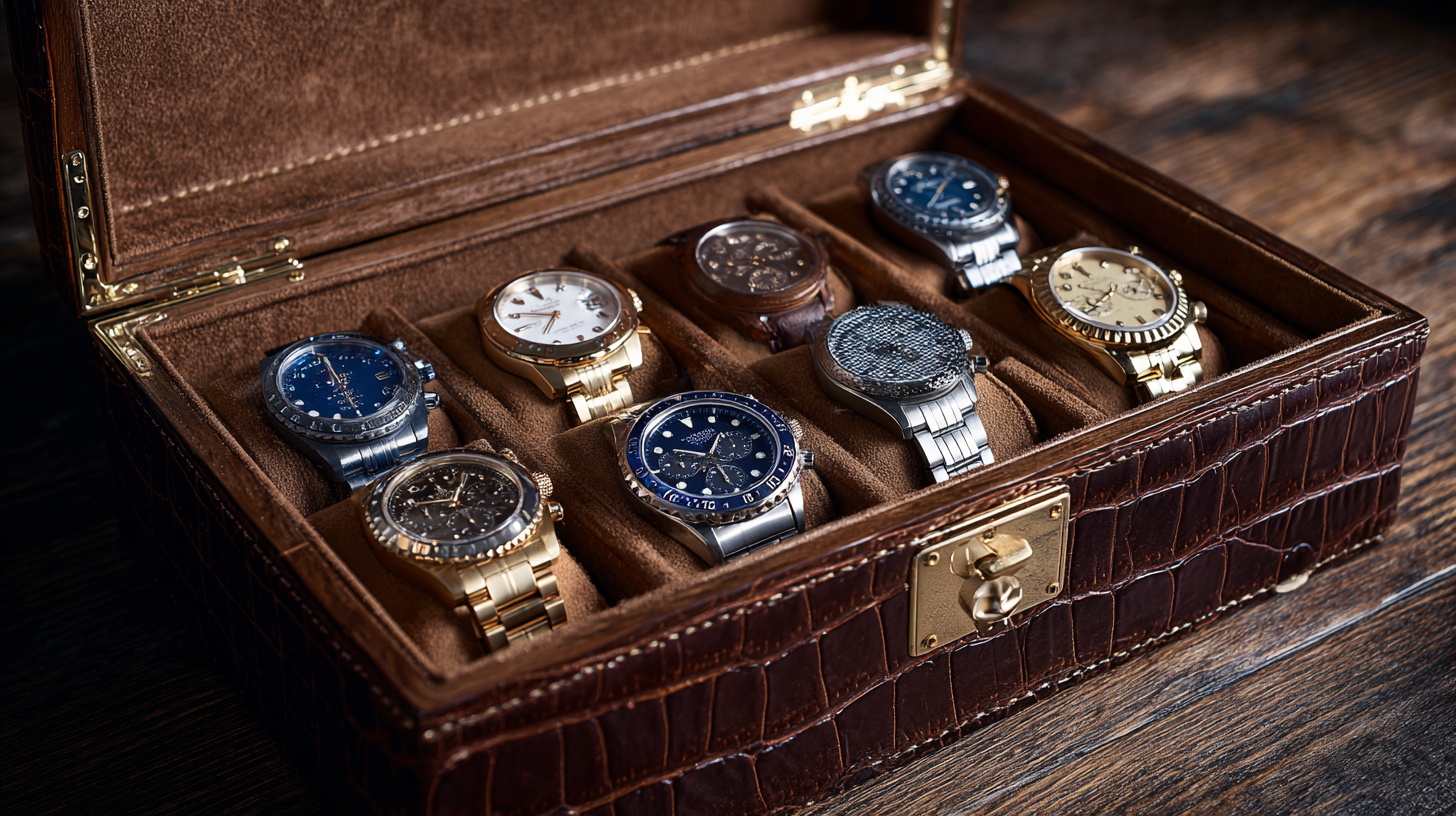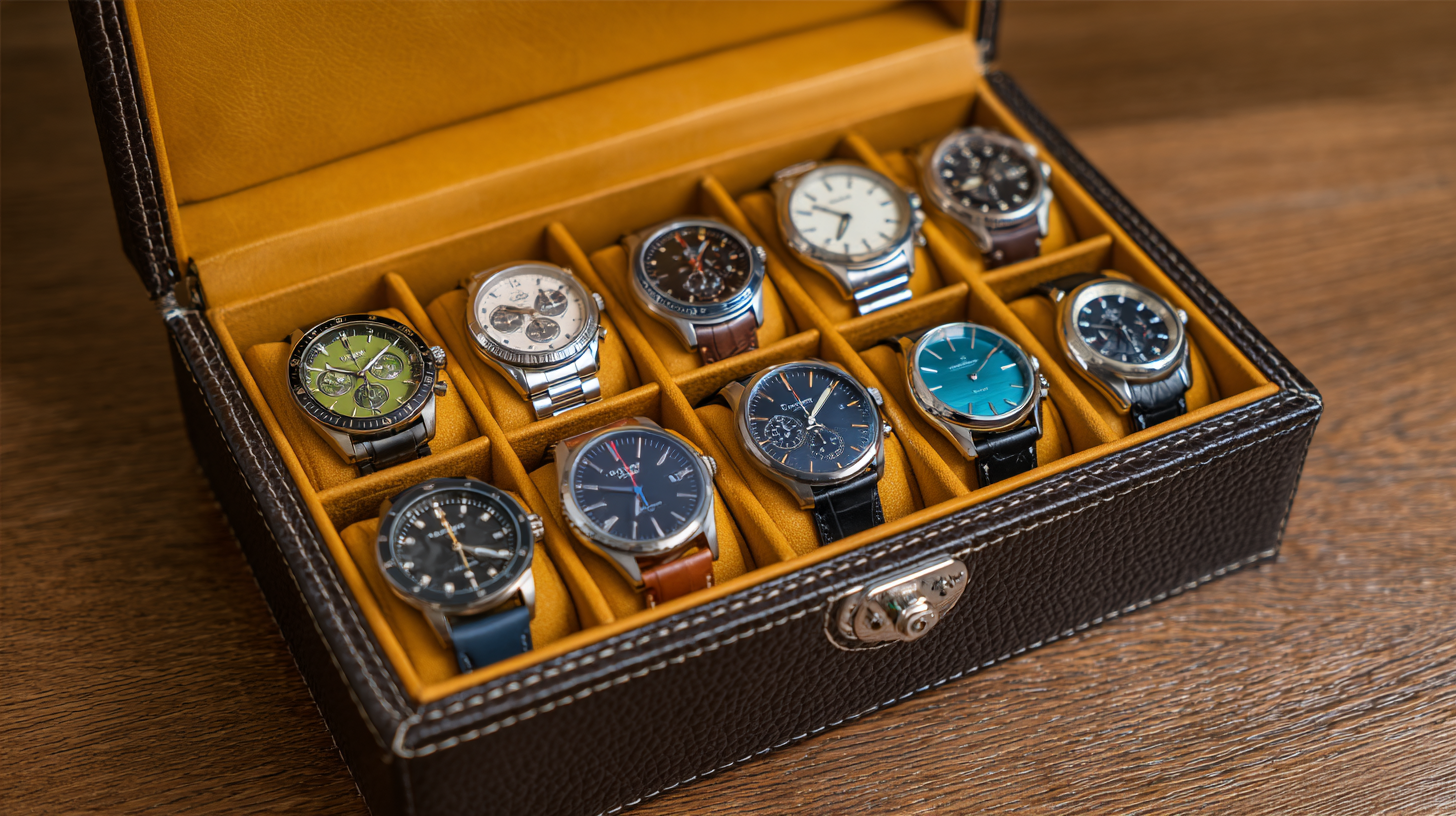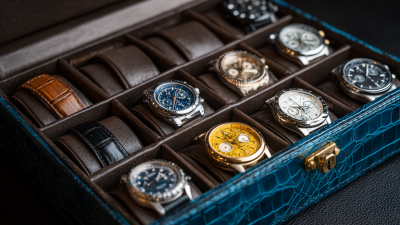In the intricate world of horology, selecting the perfect watch case is paramount to both functionality and aesthetics. Recent studies indicate that a staggering 65% of watch enthusiasts consider the case design to significantly impact their purchasing decisions, with materials and durability being crucial factors. The watch case serves not only as the protective armor for the delicate movements within but also as a statement of style and craftsmanship.

With an ever-growing market projected to reach over $7 billion by 2025, understanding the nuances of watch case variations—from stainless steel to titanium and ceramic—has never been more vital for consumers. This guide delves into the essential aspects of choosing the ideal watch case that aligns with your personal style and practical needs, ensuring your timepiece not only tells time but also resonates with your identity.
When it comes to choosing a watch case, the material used is one of the most critical factors that can influence both the aesthetics and functionality of your timepiece. Steel cases, for instance, are celebrated for their durability and resistance to scratches and corrosion, making them ideal for everyday wear. Stainless steel offers a polished look, while titanium is lighter and non-reactive, appealing to those looking for a comfortable and hypoallergenic option.
On the other hand, precious metal cases, such as gold or platinum, are perfect for those seeking luxury and timelessness. These materials not only enhance the value of the watch but also add a distinct elegance to your wrist. However, they may be more susceptible to scratches and require more care compared to their steel counterparts. Additionally, synthetic materials like carbon fiber or ceramic are gaining popularity, prized for their lightweight nature and unique designs. Ultimately, the choice of material should align with your lifestyle, personal style, and the intended use of the watch.
| Material | Durability | Weight | Water Resistance | Aesthetic Appeal |
|---|---|---|---|---|
| Stainless Steel | Very High | Moderate | Up to 300m | Classic Look |
| Titanium | High | Lightweight | Up to 200m | Modern Look |
| Ceramic | High | Lightweight | Up to 100m | Glossy Finish |
| Plastic | Low | Very Lightweight | Limited | Casual Look |
| Gold | High | Heavy | Up to 30m | Luxurious Look |
When selecting the perfect watch case shape, it's essential to understand how various designs influence overall style. According to a recent report by the International Watch Federation, 67% of consumers prioritize aesthetics over functionality when purchasing timepieces. This emphasizes the importance of case design in appealing to potential buyers. From classic round cases to innovative tonneau shapes, the silhouette of the watch can convey different personalities and cater to diverse sartorial tastes.
Round cases, for instance, remain the most popular choice, holding about 45% of the market share due to their timeless elegance and versatility. In contrast, square cases offer a more modern and bold look, making them a favorite among fashion-forward individuals. A study by Luxotics Market Research indicates that watches with unconventional shapes, like cushion and barrel cases, are witnessing a 25% annual growth rate as consumers increasingly seek uniqueness in their accessories. Understanding these trends can help prospective watch owners choose a case shape that not only appeals to their aesthetic preferences but also fits seamlessly into their lifestyle.

When selecting a watch case, it's essential to align it with both your
lifestyle and
usage needs. According to a recent report by the
International Watch Market,
60% of watch buyers prioritize functionality
over aesthetics. This trend underscores the importance of considering
how you intend to use the timepiece. For example, individuals with
active lifestyles may benefit from robust cases
made from materials like titanium or reinforced
stainless steel, which offer enhanced durability and resistance
to wear and tear.
Additionally, the watch case's
water resistance rating is crucial for
those who frequently engage in water sports or outdoor activities. The
Water Resistance Standards established
by ISO indicate that a case rated at least 100 meters
is ideal for swimming, while divers might require watches with a case rated for
200 meters or more. By understanding these
specifications and assessing your daily activities, you'll be better equipped to
choose a case that not only complements your style but also withstands the rigors
of your lifestyle.
When selecting a watch, understanding water resistance ratings is crucial for ensuring its durability and functionality, especially for active lifestyles or aquatic adventures. Water resistance is commonly measured in meters (m) or atmospheres (ATM), indicating how deep the watch can go without compromising its integrity. For instance, a watch rated at 30m can withstand splashes and rain, while a rating of 100m is suitable for swimming. According to a report by the International Organization for Standardization (ISO), only around 30% of consumers accurately understand these ratings, highlighting the importance of education in this area.
Tip: Always opt for a watch that surpasses your intended use. If you plan on engaging in water sports, look for models rated at 200m or more for reliable performance.

Another key aspect is the watch's construction material, as it significantly affects its water resistance. Stainless steel cases tend to offer better durability against corrosion compared to plastic ones. A study from the watch industry reveals that over 50% of claims for water damage arise from failure to maintain proper seals during regular maintenance, underscoring the need for periodic checks to ensure performance.
Tip: Regularly inspect your watch seals and gaskets, and consider having them replaced during battery changes to maintain optimal water resistance.
When selecting a watch case, achieving the perfect fit is crucial for both style and comfort. Start by measuring your wrist size accurately—this can be done using a flexible measuring tape or a piece of string. Ideally, the watch case should sit snugly on your wrist without pinching or sliding around. A well-fitting watch not only looks better but also enhances your daily wear experience. Remember that case sizes can vary significantly, so it’s helpful to try on different styles to see what feels best.
Additionally, consider the thickness and weight of the watch case. A thicker case might feel bulkier, while a lighter watch can offer a more subtle presence on the wrist. Adjustability is another factor; some cases come with interchangeable bands or adjustable links that allow for a more personalized fit. By prioritizing these sizing and comfort considerations, you can ensure that your chosen timepiece not only complements your style but also feels great throughout the day.






